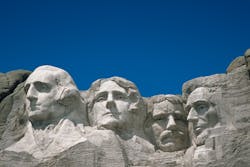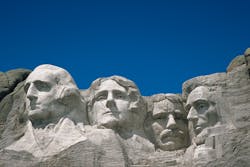South Dakota earns "D" for prevention, gives more liberty to hygienists
January 10, 2013
When the Pew Center on the States published a reporton dental prevention, South Dakota was one of the 15 states that earned a grade of “D.” The assessments were based of off policies that were current on July 1, 2012. States were graded on these four benchmarks:
- expanding school-based sealant programs,
- updating hygienist supervision rules,
- having adequate data collection systems, and
- reaching Healthy People 2010 sealant objectives.
View a PDF of the report, Falling Short: Most States Lag On Dental Sealants.
Dental therapists and their critics
Kellogg survey
The first two benchmarks, however, may soon need to be revisited. On the very day that the Pew Center based their assessment, the state of South Dakota passed the South Dakota Dental Practice Act. This law allows dental hygienists, when in agreement with a dentist, to provide basic dental care to patients – before a dentist has assessed their oral health.
The law will help expand access to care to many South Dakotans who have previously been untreated. “It’s allowing hygienists to go out into the community setting, where they can do screenings and preventative procedures primarily on children and elderly,” said Paul Knecht, executive director of the South Dakota Dental Association in an interview withAberdeenNews.com.
With the passing of this law, hygienists are able to provide care in schools, nursing facilities, Head Start programs, mobile units, and other community settings without a dentist being present.
South Dakota dentist's steady hands help with wood carving
There are some caveats, though. Hygienists must gain a number of experience hours and be approved by the state Board of Dentistry. After being examined by a hygienist, the patient is then referred to a dentist for a follow-up appointment.
Extending liberties to dental hygienists will allow the state to focus on preventive measures in an effort to improve oral health. Let’s see if they pass the Pew test next year.


